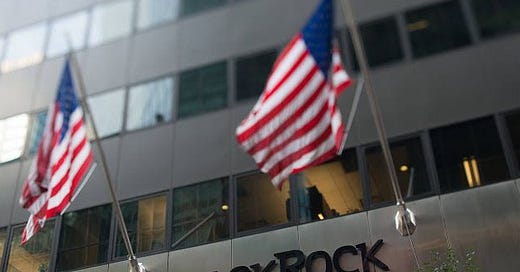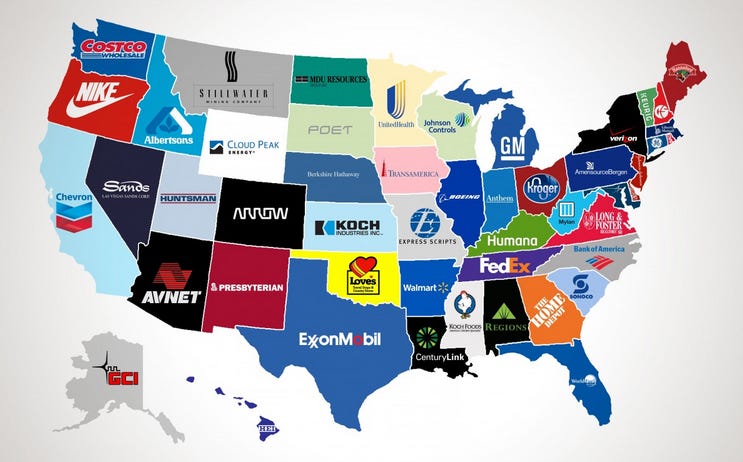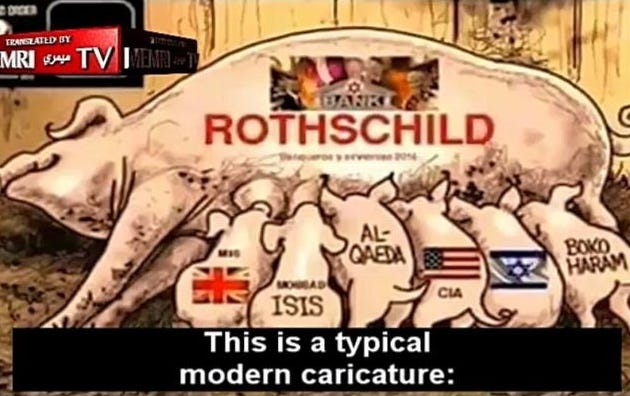Power, Deception, and Control, Part 3
Critiquing the Global Elite's Influence on Sovereignty and Rights
The global economic system is accused of deliberately manufacturing crises to further the interests of a select few. The food shortage crisis witnessed in various parts of Africa and Asia serve as prime examples. Allegations suggest that these crises are not simply the result of natural calamities or mismanagement but are orchestrated through manipulative global trade and agricultural policies. By creating artificial scarcity, certain entities – including multinational corporations and foreign governments – gain significant control over local resources. This control is exercised through the imposition of food imports and agricultural policies that favor foreign interests, effectively making these regions dependent on external aid and influence.
These engineered food shortages are seen as a deliberate tactic to exert economic and political control over vulnerable regions. By rendering these areas dependent on food imports and foreign aid, external entities can dictate terms that align with their strategic and economic interests. This strategy allows for the exploitation of local resources, be it labor, land, or commodities, ensuring the continued dominance of powerful economic players on the global stage.
The global economic system, through its complex and often opaque mechanisms, is viewed as an instrument that perpetuates inequality, exploitation, and manufactured crisis. It systematically favors powerful nations and corporations, perpetuating a global order that benefits a select few at the expense of the broader population, particularly in less developed and historically exploited regions of the world.
Legislative and Regulatory Bodies: These entities, such as the U.S. SEC or the European Central Bank, are responsible for creating and enforcing laws and regulations. They often hold significant power in shaping economic and financial landscapes. However, there is a perspective that they can be influenced by powerful corporate interests, lobbyists, and political pressures, leading to regulations that may favor certain industries or corporations.
Environmental, Social, and Governance (ESG): While ESG criteria aim to integrate sustainability and social responsibility into business and investment practices, critics argue that these efforts can be superficial or used as a tool for reputation management. There's a viewpoint that some organizations may use ESG as a guise to maintain a positive public image while continuing practices that are not genuinely sustainable or socially responsible.
Financial Alliances and Initiatives: Institutions like the World Bank or IMF have considerable influence over global economic policies and financial systems. Critics often view them as serving the interests of wealthy nations or the global financial elite, potentially at the expense of smaller economies or less developed countries. Their policies can be seen as promoting a form of economic imperialism.
Think Tanks and Policy Groups: These organizations are influential in shaping policy and public discourse. However, there is a critical view that they may represent specific ideologies or interests, particularly those of their funders, which can include governments, corporations, or wealthy individuals. This influence raises concerns about the impartiality of their research and recommendations.
Global Economic Systems: Entities like international trade organizations set policies and standards influencing global trade and economics. There is a perspective that these systems are dominated by the most powerful economies, which can lead to a global economic order that prioritizes the interests of these dominant players, often to the detriment of smaller or less powerful nations.
To illustrate the inter-relationships and mutual benefits among entities from different groups, let's select the top five most influential organizations from each group and provide an example of their interactions:
Global Economic Systems
United Nations (UN)
World Trade Organization (WTO)
International Monetary Fund (IMF)
World Bank (WB)
European Union (EU)
Think Tanks and Policy Groups
Brookings Institution (United States)
Chatham House (United Kingdom)
Carnegie Endowment for International Peace (United States)
RAND Corporation (United States)
Council on Foreign Relations (United States)
Financial Alliances and Initiatives
International Monetary Fund (IMF)
World Bank
Asian Development Bank (ADB)
European Bank for Reconstruction and Development (EBRD)
European Investment Bank (EIB)
Environmental, Social, and Governance (ESG)
Principles for Responsible Investment (PRI)
Ceres
European Sustainable Investment Forum (Eurosif)
Forum for Sustainable and Responsible Investment (US SIF)
Global Reporting Initiative (GRI)
Legislative and Regulatory Bodies
U.S. Securities and Exchange Commission (SEC)
Financial Conduct Authority (FCA) - UK
Federal Reserve System (Fed) - USA
European Central Bank (ECB)
China Securities Regulatory Commission (CSRC)
Understanding the intricate interrelationships between various influential organizations across the categories of Global Economic Systems, Think Tanks and Policy Groups, Financial Alliances, and Initiatives, Environmental, Social, and Governance (ESG) criteria, and Legislative and Regulatory Bodies is complex. These entities often have overlapping objectives and interests, and their interactions can shape global policy, economic trends, and governance practices.
Global Economic Systems (e.g., UN, WTO, IMF, World Bank, EU)
United Nations (UN): As a central hub for international diplomacy, the UN influences global policy and provides a platform for various entities to collaborate. It can benefit from and contribute to the research and analysis provided by think tanks like the Brookings Institution, shaping its approach to global issues. The UN's policies and initiatives often align with the goals of ESG entities, promoting sustainability and social responsibility. Its decisions and directives can influence the regulations set by bodies like the SEC or ECB, and it often collaborates with financial alliances like the IMF and World Bank on development projects.
World Trade Organization (WTO): Sets international trade rules that are influenced by and can influence legislative and regulatory bodies. WTO decisions can be informed by think tank research, impacting global economic policies. Its trade standards can align with ESG principles, affecting how corporations and financial institutions operate.
International Monetary Fund (IMF) & World Bank: Provide financial assistance and policy advice, often in line with research from think tanks. Their policies can reflect ESG concerns, influencing how financial markets and institutions operate. They often work in tandem with legislative bodies to shape economic reforms in countries.
European Union (EU): As a political and economic union, the EU's policies are often informed by think tank research and ESG criteria. It interacts with global economic entities like the UN and WTO in shaping trade and economic policies and with financial bodies in matters of economic development and stability.
Think Tanks and Policy Groups (e.g., Brookings Institution, Chatham House)
Brookings Institution & Others: Produce research and policy recommendations that can influence the decisions of global economic systems like the UN and WTO. Their analysis might shape the regulatory approaches of entities like the SEC or ECB. They also provide intellectual frameworks that can guide ESG initiatives and financial alliances in their strategies.
Financial Alliances and Initiatives (e.g., IMF, World Bank)
IMF & World Bank: Their policies and financial strategies are often guided by research from think tanks. They interact with legislative bodies to influence economic policies and with global economic systems in matters of global financial stability. Their initiatives can be aligned with ESG criteria, influencing how investments are made globally.
Environmental, Social, and Governance (ESG)
ESG Entities: Influence the policy-making process of global economic systems by advocating for sustainable practices. They can shape the research agenda of think tanks and influence the investment strategies of financial alliances. ESG principles are increasingly being incorporated into the regulatory frameworks of legislative bodies.
Legislative and Regulatory Bodies (e.g., SEC, ECB)
SEC, ECB, & Others: Regulate financial markets and corporations, with their policies often informed by think tank research and global economic trends set by entities like the IMF and World Bank. They are increasingly incorporating ESG criteria into their regulatory frameworks, influencing how businesses operate globally.
Intersecting Interests and Mutual Benefits
Policy Development: Think tanks provide research that informs the policies of global economic systems and legislative bodies. These policies often align with ESG criteria, shaping the investment strategies of financial alliances.
Regulatory Influence: Regulatory bodies influence and are influenced by global economic trends and policies. Their regulations can impact the operations of financial alliances and reflect ESG concerns.
Financial Strategies: Financial alliances’ strategies are informed by think tank research and global economic policies. They often align with ESG criteria and can influence or be influenced by the regulatory frameworks set by bodies like the SEC.
Sustainable Development: ESG entities advocate for sustainable practices, influencing the policies of global economic systems and the regulatory frameworks of legislative bodies. Their principles can shape the investment strategies of financial alliances.
International and U.S.A Beneficiaries and Controllers
To provide a clearer and more structured analysis of the entities influencing global economic systems, environmental governance, legislative bodies, financial institutions, and think tanks/policy groups, I'll break down this complex landscape from both an international and a U.S. perspective. This analysis aims to highlight the need for transparency and accountability, as these entities often hold significant influence over global and national affairs yet may not always prioritize the interests of citizens.
International Perspective
Government Officials and Policymakers: Globally, government officials enact laws and regulations that can directly affect various organizations. The extent of this influence varies across political systems.
Donors and Funders: International organizations often depend on funding from various sources. These funders can steer the priorities and activities of these organizations, sometimes aligning them more with private interests than public welfare.
Board Members and Executives: The leadership within these organizations significantly shapes their strategic direction. Their decisions can have global implications, especially in multinational corporations and large NGOs.
Members and Affiliates: Members of trade organizations and economic forums can sway policies and activities, influencing global economic trends and regulatory practices.
Academics and Researchers: Research and academic analysis are vital for think tanks and policy groups. They provide the intellectual groundwork that can guide global policies and practices.
Public Opinion and Media: The media and public opinion shape organizational priorities by focusing attention on specific issues, thereby influencing global discourse and policies.
International Bodies: Entities like the United Nations set global standards and policies, impacting various organizations' activities, especially in terms of international law and global initiatives.
Non-Governmental Organizations (NGOs): NGOs often collaborate with other organizations, influencing policies and activities, especially in the realms of human rights, environmental conservation, and social welfare.
U.S. Perspective
Government Officials and Policymakers: U.S. officials engage actively with think tanks and NGOs for policy advice, research, and enacting influential laws and regulations.
Donors and Funders: U.S.-based organizations, including think tanks, are significantly influenced by their funders, which can include wealthy individuals, corporations, and other entities, shaping their agendas and activities.
Board Members and Executives: In the U.S., individuals in leadership positions within organizations wield considerable power over their direction, often influencing national policies and debates.
Members and Affiliates: U.S. trade organizations and economic forums play a key role in shaping economic policies and practices within the country.
Academics and Researchers: The input of academics and researchers in the U.S. is crucial for think tanks and policy groups, influencing both public opinion and policy.
Public Opinion and Media: In the U.S., public opinion, aided by media coverage, can significantly influence the priorities and activities of various organizations.
International Bodies: While the U.S. is a major player in international bodies, these entities also influence U.S. policies and practices, especially in terms of international agreements and standards.
NGOs: NGOs in the U.S. often work in tandem with other organizations to influence policies and activities, particularly in areas like environmental policy and social justice.
Key Influencers: International and U.S. Perspectives
Mutual Influence in International and U.S. Dynamics:
Most Influential Internationally: Government officials and international bodies, such as the United Nations, are pivotal in setting global policies and practices. However, this influence is not unidirectional. These bodies are themselves influenced by a myriad of global factors, including economic trends, global public opinion, multinational corporations, and non-governmental organizations. This interplay creates a dynamic environment where policies and decisions are the result of complex negotiations and power balances.
Most Influential in the U.S.: In the United States, government officials and policymakers, along with major donors and funders, significantly shape national policies and organizational activities. Conversely, these officials and organizations are also subject to influence by public opinion, media narratives, grassroots movements, and international trends. This mutual influence makes the policymaking process in the U.S. a multifaceted and often unpredictable landscape.
Challenges and Opportunities for Citizens:
The mutual influence between these entities creates a volatile and complex environment that can be challenging for citizens to navigate. However, understanding this dynamic is crucial for effective civic engagement.
Knowledge is Power: Citizens armed with knowledge about these interdependencies can more effectively advocate for their interests and hold these entities accountable.
Active Participation: Engaging in democratic processes, from local to international levels, allows citizens to become a part of this network of influence, rather than mere observers.
Critical Analysis: By critically analyzing the motives and actions of these entities, citizens can better understand their impact on society and the environment, and push for transparency and accountability.
Navigating Mutual Influence:
Advocacy and Lobbying: Citizens can form or join advocacy groups to lobby for changes in policies, particularly those that impact public welfare and global issues like climate change and human rights.
Public Discourse and Media: Participating in public discourse and leveraging media platforms can help shape public opinion, which in turn can influence policymakers and organizations.
Educational Initiatives: Educating oneself and others about these dynamics increases public awareness, leading to more informed decision-making at the ballot box and in public debates.
The mutual influence between various international and U.S. entities, while complex, offers avenues for citizen involvement and oversight. Understanding these dynamics enables citizens to better navigate and potentially influence the policymaking process, ensuring that it aligns more closely with public interest of all sovereign nations.
Need for Transparency and Accountability
Given the substantial influence these entities exert, it's crucial for citizens, both in the U.S. and globally, to advocate for greater transparency and accountability. This vigilance is necessary to ensure that these entities operate in the best interest of the public, rather than serving narrower, private interests. This understanding empowers citizens to demand responsible governance and ethical practices from those who hold significant sway over our world's economic, environmental, and social systems.
Written by SpartanAltsobaPatriot
References:
These funders can have a significant influence on the organization’s priorities and activities.
This is particularly true for trade organizations and economic forums.
These individuals can influence these organizations through their research findings.
5 Think Tanks That Have Successfully Impacted Public Policy - The Kolabtree Blog
Abelson, D. E. (2006).
Title: A Capitol Idea: Think Tanks & US Foreign Policy
Publisher: McGill-Queen's University Press
Reference ID: Abelson2006Abelson, D. E. (2018).
Title: Do Think Tanks Matter? Assessing the Impact of Public Policy Institutes
Publisher: McGill-Queen's University Press
Reference ID: Abelson2018Abelson, D.E. & C.J. Rastrick (Eds.) (2021).
Title: Handbook on Think Tanks in Public Policy
Reference ID: ref3Braml, J. (2017).
Chapter: Germany: The Think and the Tank
In: Think Tanks, Foreign Policy and Geo-Politics: Pathways to Influence
Edited by: Abelson, D. E., Brooks, S., & Hua, X.
Publisher: Routledge
Reference ID: Braml2017Drezner, D. W. (2017).
Title: The Ideas Industry: How Pessimists, Partisans, and Plutocrats are Transforming the Marketplace of Ideas
Publisher: Oxford University Press
Reference ID: Drezner2017McGann, J. G. (2021).
Title: 2020 Global Go To Think Tank Index Report. Think Tanks and Civil Societies Program
Publisher: University of Pennsylvania
Reference ID: McGann2021Medvetz, T. (2012).
Title: Think Tanks in America
Publisher: University of Chicago Press
URL: https://doi.org/10.7208/chicago/9780226517308.001.0001
DOI: 10.7208/chicago/9780226517308.001.0001
Reference ID: Medvetz2012Menegazzi, S. (2018).
Title: Rethinking Think Tanks in Contemporary China
Publisher: Springer
URL: https://doi.org/10.1007/978-3-319-57300-7
DOI: 10.1007/978-3-319-57300-7
Reference ID: Menegazzi2018Pautz, H. (2012).
Title: Think Tanks, Social Democracy, and Social Policy
Publisher: Palgrave Macmillan
URL: https://doi.org/10.1057/9780230368545
DOI: 10.1057/9780230368545
Reference ID: Pautz2012











Thank you for this excellent series on how the various facets of the power dynamic works in the world. Your descriptions of the players involved and how the uppermost levels within each can be influenced explains why it was important for the uppermost globalists to control their actions. Tying it together with the world’s governments and the international entities to help influence and establish the desired narratives and outcomes shows the status of the one world governance, and more importantly, the resistance to their goals. You are a true wealth of information! God bless you.🙏🙏
Interesting fact: whenever 3.5% of the people demand change, it has never failed to work:
https://www.bbc.com/future/article/20190513-it-only-takes-35-of-people-to-change-the-world
Of course this time, with everything on the line, the Deep State/Cabal might be expected to fight back against even this significant of a group... but there is potential for a united populace, even just a few percent, to effect a significant change.